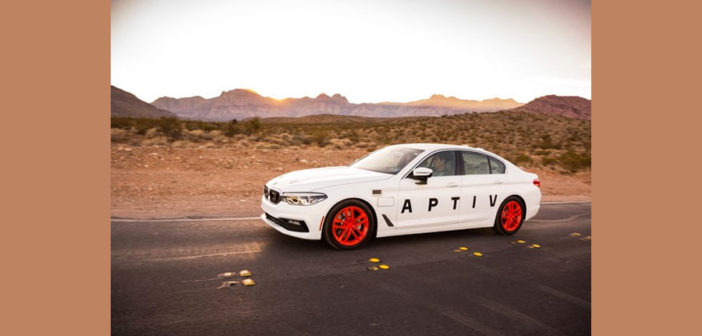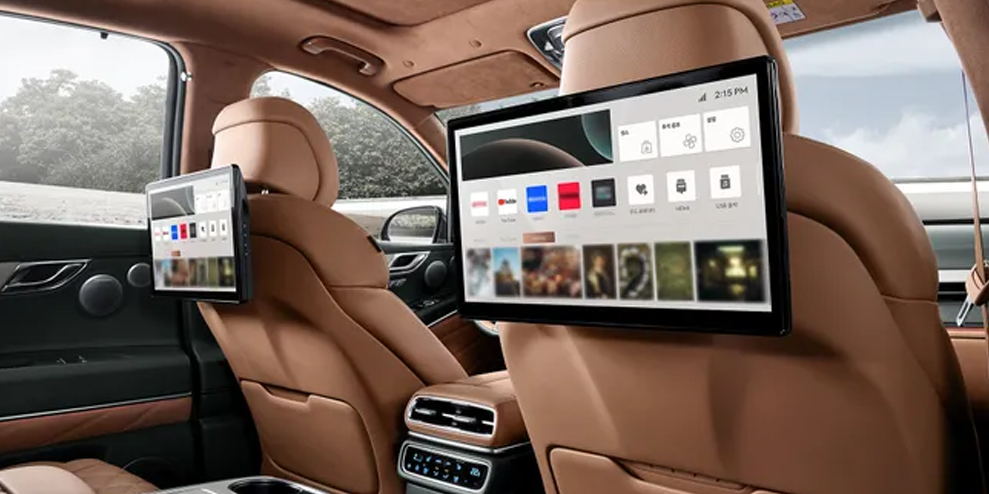HENRIK FISKER SPENT this year’s CES at Booth 3315, standing next to a deep red, curvaceous, quirky electric sedan with doors that pivot like wings. The EMotion is the work of Fisker Inc, the car designer’s latest venture. But the stage Fisker and the car stood on didn’t say Fisker Inc. It said Quanergy—a Silicon Valley-based startup that makes lidar sensors for self-driving cars; it has plans to embed several of its units is discreetly into the new car.
Fisker wasn’t the only one shacking up at CES. Ford’s display highlighted not cars, but its deal with Dominos to work on autonomous pizza deliveries. Pizza Hut announced a partnership with Toyota. Lyft joined forces with Aptiv to give showgoers rides in autonomous cars. Nobody was going it alone.
But at the Detroit Auto Show just a week later—which is still about cars, not all this mobility stuff—Mercedes didn’t unveil the newest, brashest G-Class in conjunction with its exhaust supplier. Dodge didn’t team up with a construction company to showcase its new Ram 1500 pickup. Unless you’re a car geek, you’ve probably never heard of Delphi, ZF, Bosch, or Valeo, the global megasuppliers on which the auto industry depends. That’s because automakers take pains never to mention those companies (unless they screwed up, say, an airbag design). When they buy an advanced cruise control system or hybrid components, they slap their own made-up name on them, and market them as their innovations.
The race to develop driverless cars is reshaping that relationship. As cars learn to drive themselves, they require components from new sorts of companies, many of them startups. “The entire value chain is now screwed up, we’re seeing something different happening here,” says Dennis Nobelius. He’s the CEO of Zenuity, a joint venture focused on self-driving software, formed between safety equipment supplier Autoliv and Volvo, and which also has partnerships with Nvidia, TomTom, and Ericsson.
This setup—which sounds like the business equivalent of an interpersonal arrangement made at Burning Man—is typical of the new ecosystems being created. They are replacing the traditional hierarchy of car builder and tier one, two, and three component makers that a supply chain.
“With all the new technologies merging, you have to have partners, because you can’t be expert in everything,” Fisker says from his corner of the Quanergy booth. The car companies are experts in building engines, but not image processing software, or sensors. They don’t have data on how people really use cars, traditionally just handing over the keys at the dealership, and they don’t know how they’ll use them in the future. Fisker may understand electric propulsion, but he’s no lidar expert.
But why all the trumpeting? Why the raging river of press releases announcing deals that no one not directly involved cares about? Why the shared stages? Because all these companies—the automakers, the tech giants, the stodgy suppliers, the gungho startups—are desperate to tell the world they’re with it, they’re hip to the massive shift autonomous technology will visit upon them.
Team Up to Win
For consumers, that shift could mean a new way of thinking about purchases (if we still buy cars at all in the future). Instead of loyalty to a certain German brand for sportiness, or Japanese marque for reliability, you may someday search out cars with specific silicon chip brains, or bespoke software, that you’ve learned to trust.
It’s all part of the competition to make a real, commercially viable, self-driving car platform. The first group that can achieve that goal, at a reasonable cost, is likely to clean up by licensing the tech to others. Although a multitude of companies are competing to build self driving cars, the likely eventual scenario is just two or three emerge as “winners,” buying up, merging with, or simply overtaking the others on the way. Buddying up now hedges against being forced to do it later. We’ve seen it before: In the early 20th century, dozens of small automakers fought for dominance. Now just a handful of giants are left.
That new visibility is a critical opportunity for the younger, smaller companies, as the public’s perception of cars changes. They want you to know their name. They want you to trust them to keep your family safe in a self-driving car. Buyers already shell out thousands for an in-car sound system with a fancy name like Harman Kardon, or Mark Levinson. Surely the car’s brain, which is in change of driving you around, is worth a premium too?
It’s an echo of what happened in the computer industry in the 90s, when the “Intel Inside” campaign made computer buyers care about a semiconductor chip buried deep in their new, beige, machines. (It was so successful, I bet you just made the Intel sound in your head reading this.)
“Zenuity Inside—that’s what happening right now,” says Nobelius. (So he hopes, anyway.) He believes that in the coming years, people won’t necessarily search out a Volvo for its safety reputation, but buy, lease, or ride in cars that have proven software and hardware designed for autonomous driving, no matter who bolts it all together.
One of the smoothest of the many, many, self-driving demonstration rides at CES came from Aptiv, formerly Delphi, that partnered with Lyft to give attendees 400 rides in an autonomous BMW 5 Series. The computer in charge was impressive, but part of the luxury experience came from the high-end German sedan. This is the dilemma for automakers: They want to capitalize on the branding of their suppliers (Ding! Dum dum dum dum!), without losing their own. (Although BMW’s “the ultimate driving machine” may need an update.)
Aptiv CEO Kevin Clark acknowledges he would be playing catch up with the big car brands, when it comes to getting their name out there. “We have a customer base who have a strong brand recognitions, who have been customer-facing, some of them, for over 100 years.”
But already some some rock stars are emerging, if only because of the volume of their brand marketing. Nvidia seems to be the chip supplier of choice, with partnerships announced with Uber, VW, Aurora, and Baidu, as well as Zenuity. Qualcomm, which makes kit for connected cars, including new 5G chips, listed all its automotive partners on a presentation slide; it was hard to think of a company not on the list. Velodyne has established itself as the lidar supplier of choice, even as competitors fight for a chunk of the lucrative sales action. So you can see why little-known lidar maker Quanergy and Henrik Fisker shared a stage: There’s no better reputation booster than hanging with the cool kids.
–
This article first appeared in www.wired.com
Seeking to build and grow your brand using the force of consumer insight, strategic foresight, creative disruption and technology prowess? Talk to us at +9714 3867728 or mail: info@groupisd.com or visit www.groupisd.com



